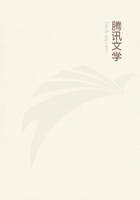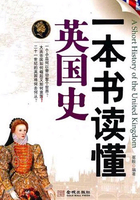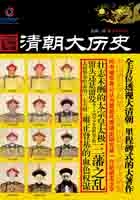It is no mere coincidence that such divergent writers as Pietro Gori and William Marion Reedy find similar traits in their characterization of Emma Goldman. In a contribution to LA QUESTIONESOCIALE, Pietro Gori calls her a "moral power, a woman who, with the vision of a sibyl, prophesies the coming of a new kingdom for the oppressed; a woman who, with logic and deep earnestness, analyses the ills of society, and portrays, with artist touch, the coming dawn of humanity, founded on equality, brotherhood, and liberty."William Reedy sees in Emma Goldman the "daughter of the dream, her gospel a vision which is the vision of every truly great-souled man and woman who has ever lived."Cowards who fear the consequences of their deeds have coined the word of philosophic Anarchism. Emma Goldman is too sincere, too defiant, to seek safety behind such paltry pleas. She is an Anarchist, pure and simple. She represents the idea of Anarchism as framed by Josiah Warrn, Proudhon, Bakunin, Kropotkin, Tolstoy. Yet she also understands the psychologic causes which induce a Caserio, a Vaillant, a Bresci, a Berkman, or a Czolgosz to commit deeds of violence. To the soldier in the social struggle it is a point of honor to come in conflict with the powers of darkness and tyranny, and Emma Goldman is proud to count among her best friends and comrades men and women who bear the wounds and scars received in battle.
In the words of Voltairine de Cleyre, characterizing Emma Goldman after the latter's imprisonment in 1893: The spirit that animates Emma Goldman is the only one which will emancipate the slave from his slavery, the tyrant from his tyranny--the spirit which is willing to dare and suffer.
HIPPOLYTE HAVEL.
New York, December, 1910.
PREFACE
Some twenty-one years ago I heard the first great Anarchist speaker--the inimitable John Most. It seemed to me then, and for many years after, that the spoken word hurled forth among the masses with such wonderful eloquence, such enthusiasm and fire, could never be erased from the human mind and soul. How could any one of all the multitudes who flocked to Most's meetings escape his prophetic voice!
Surely they had but to hear him to throw off their old beliefs, and see the truth and beauty of Anarchism!
My one great longing then was to be able to speak with the tongue of John Most,--that I, too, might thus reach the masses. Oh, for the naivety of Youth's enthusiasm! It is the time when the hardest thing seems but child's play. It is the only period in life worth while.
Alas! This period is but of short duration. Like Spring, the STURMUND DRANG period of the propagandist brings forth growth, frail and delicate, to be matured or killed according to its powers of resistance against a thousand vicissitudes.
My great faith in the wonder worker, the spoken word, is no more. Ihave realized its inadequacy to awaken thought, or even emotion.
Gradually, and with no small struggle against this realization, Icame to see that oral propaganda is at best but a means of shaking people from their lethargy: it leaves no lasting impression. The very fact that most people attend meetings only if aroused by newspaper sensations, or because they expect to be amused, is proof that they really have no inner urge to learn.
It is altogether different with the written mode of human expression.
No one, unless intensely interested in progressive ideas, will bother with serious books. That leads me to another discovery made after many years of public activity. It is this: All claims of education notwithstanding, the pupil will accept only that which his mind craves. Already this truth is recognized by most modern educators in relation to the immature mind. I think it is equally true regarding the adult. Anarchists or revolutionists can no more be made than musicians. All that can be done is to plant the seeds of thought.
Whether something vital will develop depends largely on the fertility of the human soil, though the quality of the intellectual seed must not be overlooked.
In meetings the audience is distracted by a thousand non-essentials.
The speaker, though ever so eloquent, cannot escape the restlessness of the crowd, with the inevitable result that he will fail to strike root. In all probability he will not even do justice to himself.
The relation between the writer and the reader is more intimate.
True, books are only what we want them to be; rather, what we read into them. That we can do so demonstrates the importance of written as against oral expression. It is this certainty which has induced me to gather in one volume my ideas on various topics of individual and social importance. They represent the mental and soul struggles of twenty-one years,--the conclusions derived after many changes and inner revisions.
I am not sanguine enough to hope that my readers will be as numerous as those who have heard me. But I prefer to reach the few who really want to learn, rather than the many who come to be amused.
As to the book, it must speak for itself. Explanatory remarks do but detract from the ideas set forth. However, I wish to forestall two objections which will undoubtedly be raised. One is in reference to the essay on ANARCHISM; the other, on MINORITIES VERSUS MAJORITIES.
"Why do you not say how things will be operated under Anarchism?" is a question I have had to meet thousands of times. Because I believe that Anarchism can not consistently impose an iron-clad program or method on the future. The things every new generation has to fight, and which it can least overcome, are the burdens of the past, which holds us all as in a net. Anarchism, at least as I understand it, leaves posterity free to develop its own particular systems, in harmony with its needs. Our most vivid imagination can not foresee the potentialities of a race set free from external restraints.

